The Ethics of Playersexuality in Video Games
Is giving too many romance options unethical?
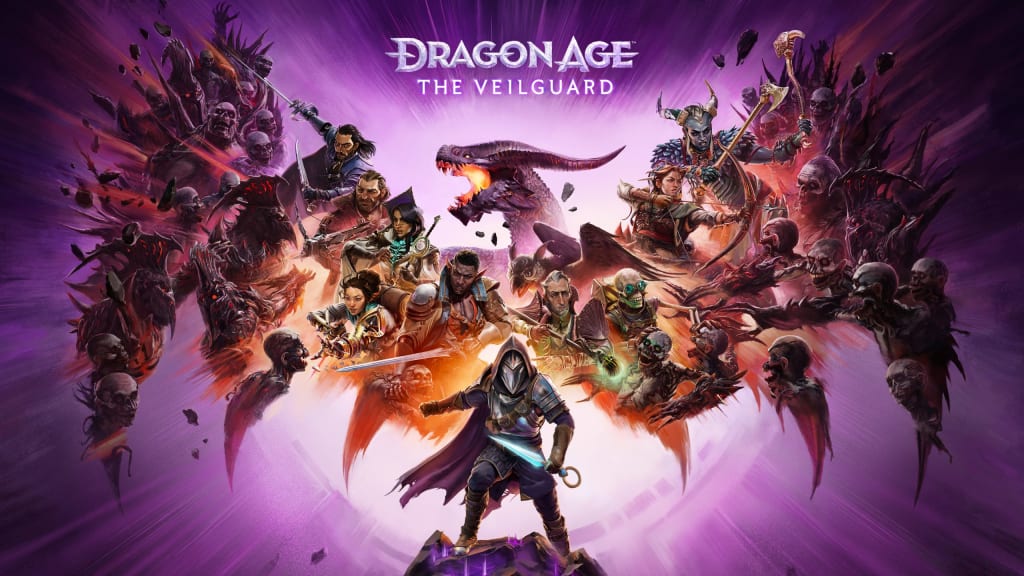
Role-playing games have always been the forefront of player immersion due to the genre’s creativity, narrative storytelling, and, of course, its cast of dynamic characters. Whether they are NPCs or recruitable companions, dynamic characters help players develop an emotional attachment to the game’s world and lore, especially if they are romanceable. However, there has been some debate about the accessibility of romanceable characters and how it can dramatically affect the gameplay and immersion.
With the announcement that all of Dragon Age: The Veilguard’s recruitable companions are romanceable regardless of the player character’s gender and race, a debate has emerged over whether this creative choice of “playersexuality” enhances or undermines the immersive agency of character development and storytelling.
What Does Playersexual Mean?
“Playersexual” is a term used to describe non-playable characters in video games who are attracted to the player character regardless of race and gender. The term originated from online discussion boards, however, it has become more prominent with the rise of RPGs that offered numerous romantic options.
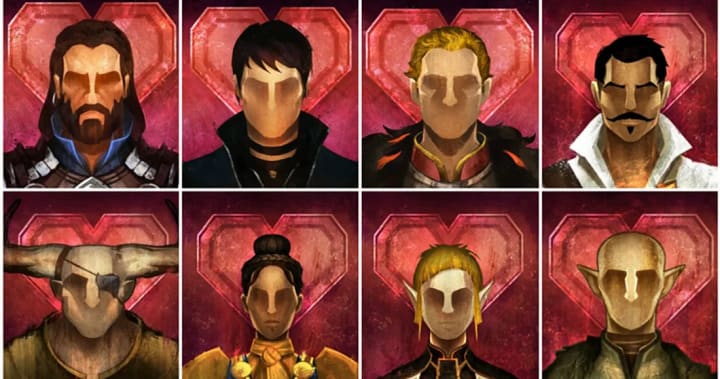
The concept was initially created to be an inclusive approach to video game design that allows players of different gender identities and sexual orientations an opportunity to engage with the game’s romantic storylines.
By providing this players the ability to romance characters regardless of gender, it gave every player the same exact experience ensuring that those with differing sexual orientations got treated the same as heterosexual players.
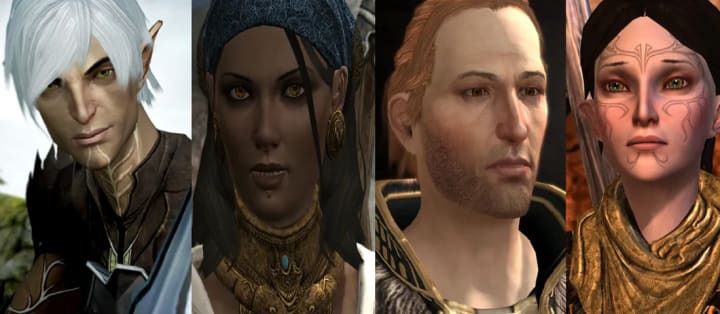
One of the earliest and most notable uses of playersexual characters was in Bioware’s Dragon Age II where the four main romance options were romanceable by the player character regardless of their choice of gender. Ever since then other games such as Elder Scrolls: Skyrim, Fallout 4, Saints Row 4, and Baldur’s Gate 3 have adopted this design choice in order to give players a flexible approach for in-game relationships.
The Problem of Playersexuality
While video games have provided developers and players a creative medium to explore the complexity of romantic relationships, it prompts several ethical questions regarding the portrayal and experience of sexuality in games.
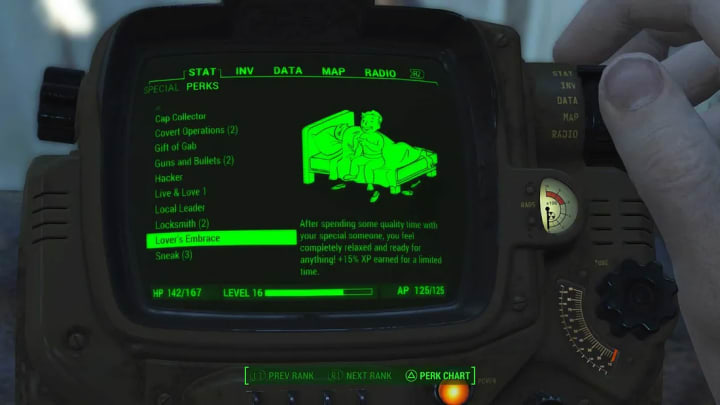
However, the main concern that divides players and critics is the question of whether if it is ethical to give everyone the option to romance whoever you want if it means diluting the authenticity and narrative integrity of heterosexual/LGBTQ+ relationships?
Inclusivity vs Authenticity
The debate between inclusivity and authenticity of playersexual characters is a divisive topic, because from a developer standpoint, the most ethical thing to do is to implement gameplay mechanics that does not restrict nor discriminate the game’s narrative for choices based on a player’s intrinsic preferences.
In this context, the developers would be taking a utilitarian stance, which focuses on maximizing the overall happiness to the most amount of people. This would ensure that all players can explore relationships that reflect their own sexual orientation and engage in the same narrative experience.
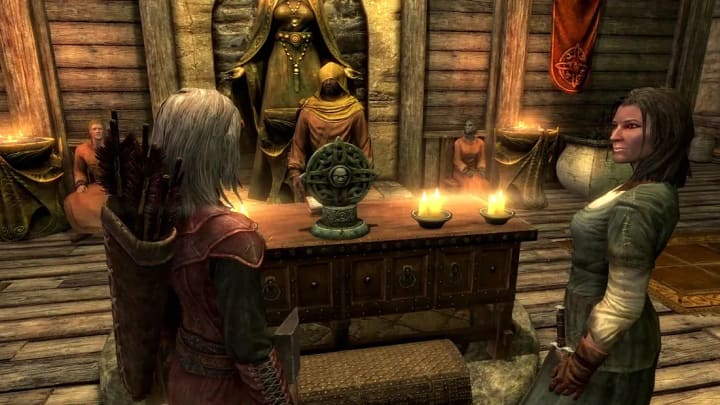
Elder Scrolls: Skyrim is a good example of this, because the game takes an inclusive approach by allowing the player to romance and marry a large list of characters regardless of race and gender, allowing players to further customize their own adventure however they see fit.
However, the problem with a utilitarian stance on this matter, it can undermine the authenticity of the romanceable characters. Virtue Ethics would argue that it is more important to establish just moral boundaries and integrity rather than just pleasing the most amount of people.
From a developer standpoint, they have moral responsibility to portray LGBTQ+ characters with depth and authenticity to ensure that they are properly represented in the video game medium. This responsibility of taking the extra step separates characters who are intentionally designed to be gay vs characters who happen to be gay.
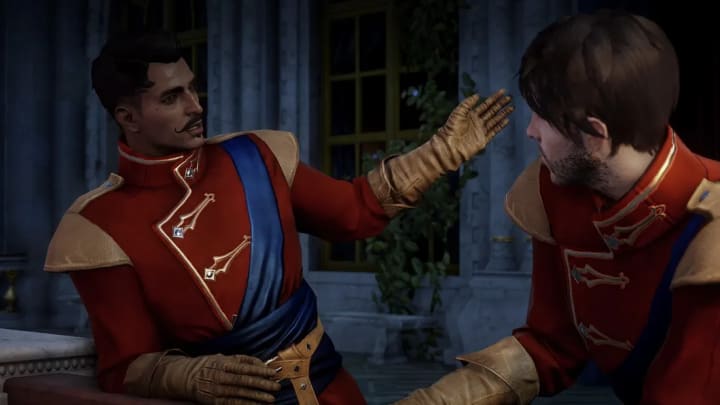
Dragon Age Inquisition perfectly represents this responsibility as it has intentionally designed romanceable characters with differing sexual orientations and even racial preferences. Characters such as Dorian and Sera were designed with the intent of representing same sex relationships and players who chose to romance them were able to authentically learn about their backstories and relate to their struggles and experiences.
By adding this layer of authenticity, it adds more to the player’s gameplay experience while providing enough unique moments that allows them to feel as if they are playing a one-of-a-kind journey. Even romancing characters with racial preferences like Cullen and Solas adds a level of authenticity to the game and provides heterosexual players that same unique experience.
Player Agency vs Narrative Integrity
While the usage of playersexual characters has improved in recent years, there is still a debate regarding its place in a game’s overarching story. As “player agency” defined as the degree to which a player can impact a game’s story and outcome through their decisions and interactions, the addition of playersexual characters can potentially affect the game’s narrative integrity for the worse.
Dragon Age II was a clear example of this, because no matter which romanceable companion you chose, it all leads towards the same ending where there isn’t as much a narrative impact with who you choose. In comparison to Mass Effect 3, where your choice on who to romance helped established the amount of importance of Commander Shepard’s mission should they fail.
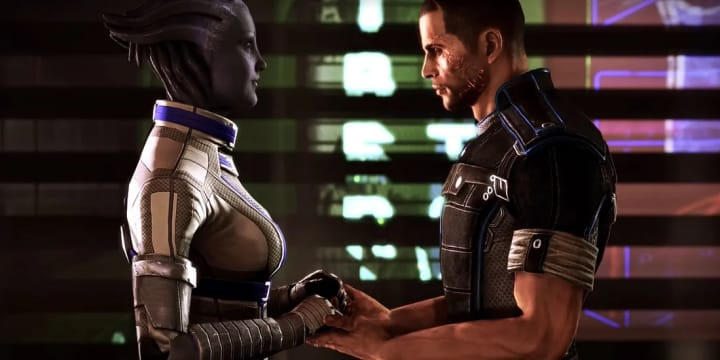
While the addition of playersexual characters is not clearly indictive of whether or not a game’s narrative integrity is comprised, but it definitely makes it more difficult for the writers to differentiate each romance storyline especially if they are faced with a limited time restraint/development budget.
We especially see how a game’s budget and scheduling can have a drastic impact on a game’s writing and gameplay. Cyberpunk 2077 and Mass Effect Andromeda suffered a litany of bugs, glitches, and awkward storytelling, despite their approach to having romanceable characters with set sexual orientations and preferences, it didn’t help improve the story that much.

In comparison to Baldur’s Gate 3, playersexual characters greatly benefited the game’s vast gameplay and dialogue options, and it appropriately matched the dungeons and dragons story and writing. Which really indicates that the inclusion of playersexual can be beneficial, but only if the writing and gameplay gives players enough freedom and challenges for their choices.
Philosophically speaking, existentialist thinkers like Jean-Paul Sartre would argue for the importance of individual freedom and authenticity and would likely advocate for video games allow players to make meaningful choices that reflect their values and identities.
However, narrative ethics suggests that people are shaped by the impact of fictional stories and this can present itself to be a problem if bad writing unintentionally create systemic social practices. So video game developers must balance player agency with the need for coherent and authentic narratives, ensuring that characters’ sexual orientations are integral to their stories rather than mere options for player exploration.
The Moral Duty of Empathy and Immersion
By establishing the fact that game developers have a moral responsibility of representing certain demographics with quality gameplay and writing, sometimes the choice of playersexual characters can be more detrimental than realized.
By trying to force a romantic gameplay option and implement a range of playersexual characters, it can come off as forced, inauthentic, and ruin the characters integrity and their development in the game’s plot. Saints Row 4 takes a satirical jab at the concept of in game romances by making all of the player’s companions romanceable regardless of the player’s choice of gender and it comes as ridiculous as one would expect it.
This means that simply making every romance option playersexual is not the end all solution and it creates a perception that these characters’ identities are defined by the protagonist’s presence.
It further implies that playersexual characters are not inherently bisexual or pansexual, but are just interested to whatever main character is. This implication alone can lead to misrepresentation and tokenism in the video game development space, because without proper identification of sexual orientations it would not serve as a fair representation.

In contrast to narrative focused games that force players to engage with a variety of characters with differing opinions and lifestyles. By creating characters with set sexual orientations it can prove to be more beneficial as it foster a level of empathy and understanding that players may have not experienced before.
Games like The Last of Us: Left Behind and Life is Strange leverage immersion as a means to foster empathy with LGBTQ+ characters and to tell stories of the LGBTQ+ experience through the eyes of Ellie and her relationship with Riley and Max and her relationship with Chloe.
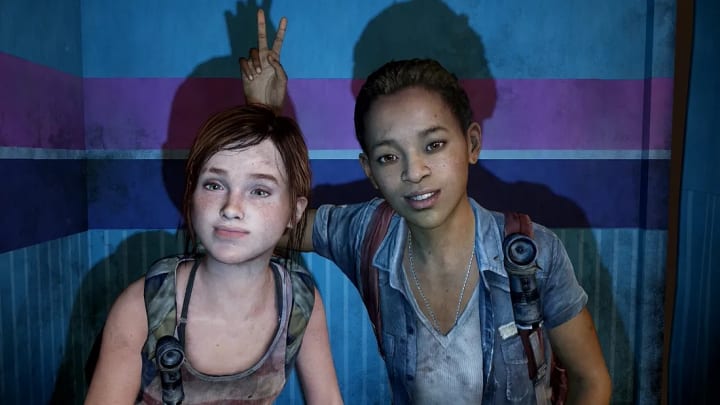
By forcing players to experience the world through the eyes of a queer character, this immersive experience can only tell a compelling story that we haven’t seen before but it can also foster a deeper understanding for LGBTQ+ individuals, challenging players’ preconceptions and biases.
Accurate and respectful representation of LGBTQ+ stories can make LGBTQ+ players can feel represented in the medium providing them a greater sense of pride to know that their stories and experiences is being seen and heard. It also respects the cultural and historical contexts of these identities, avoiding reductive or stereotypical portrayals.
Is Playersexuality Ethical?
The ethics of playersexuality in video games encompass a range of theoretical perspectives that highlight the importance of inclusivity, empathy, and authentic representation. By thoughtfully considering these ethical and social implications these in-game relationships may have on the game, developers can create games that not only entertain but also educate and foster empathy among players.
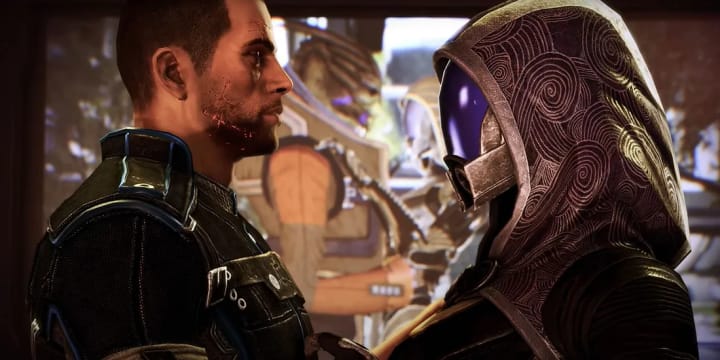
While this balanced approach requires a lot of care, attention, and a big budge, it ensures that video games with romanaceable characters can continue to be a powerful medium for exploring and celebrating the diversity of human experiences.
If you liked what you read, be sure to clap the heck out of it and follow for more related content!
About the Creator
Jay Kobayashi
A starving writer from LA who aspires to be plagiarized one day. I like to write about academic pieces that identifies philosophy and psychology in pop culture, and sometimes random fun pieces that interests me or the algorithm!
Enjoyed the story? Support the Creator.
Subscribe for free to receive all their stories in your feed. You could also pledge your support or give them a one-off tip, letting them know you appreciate their work.






Comments (1)
Keep it up.